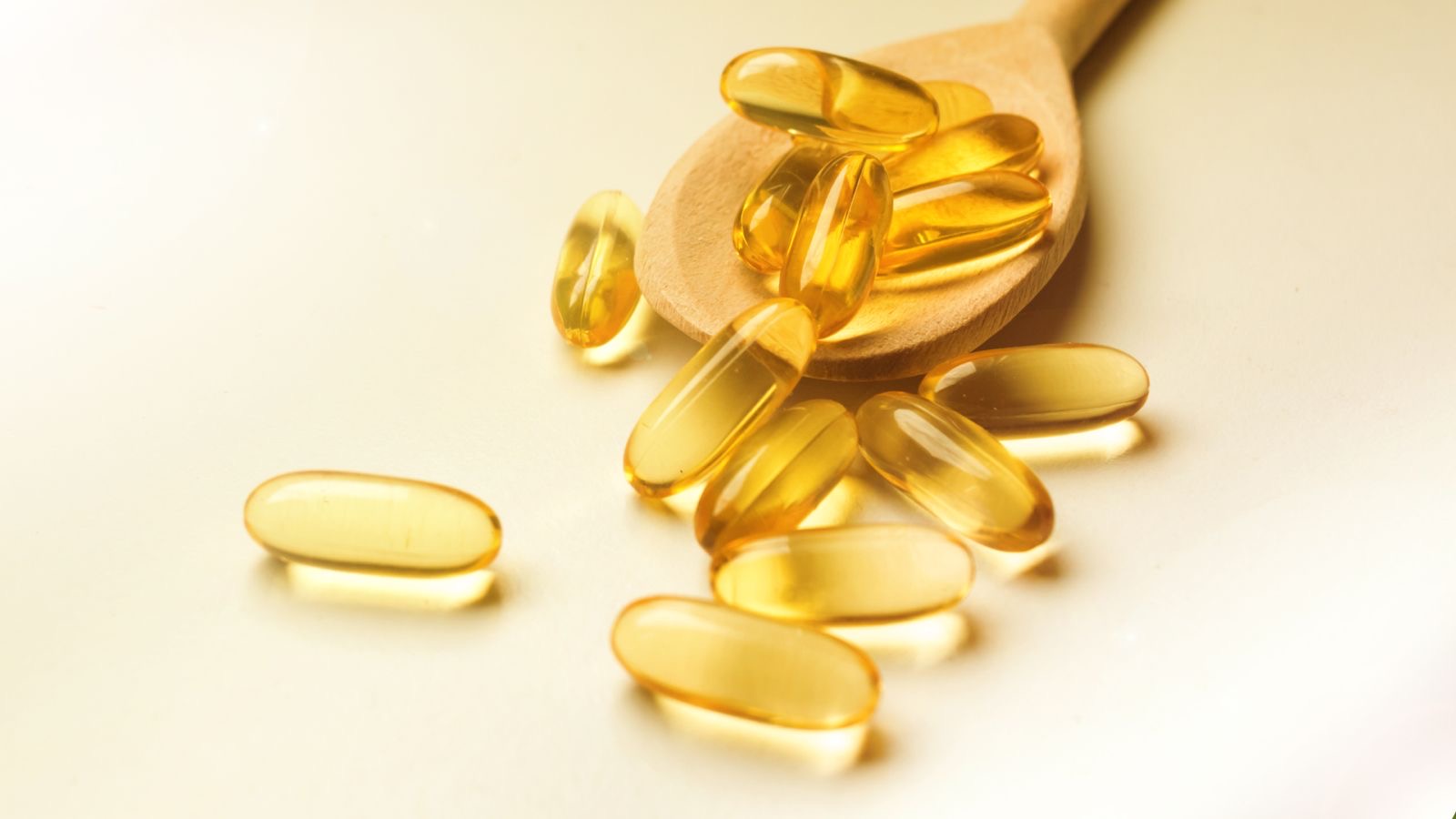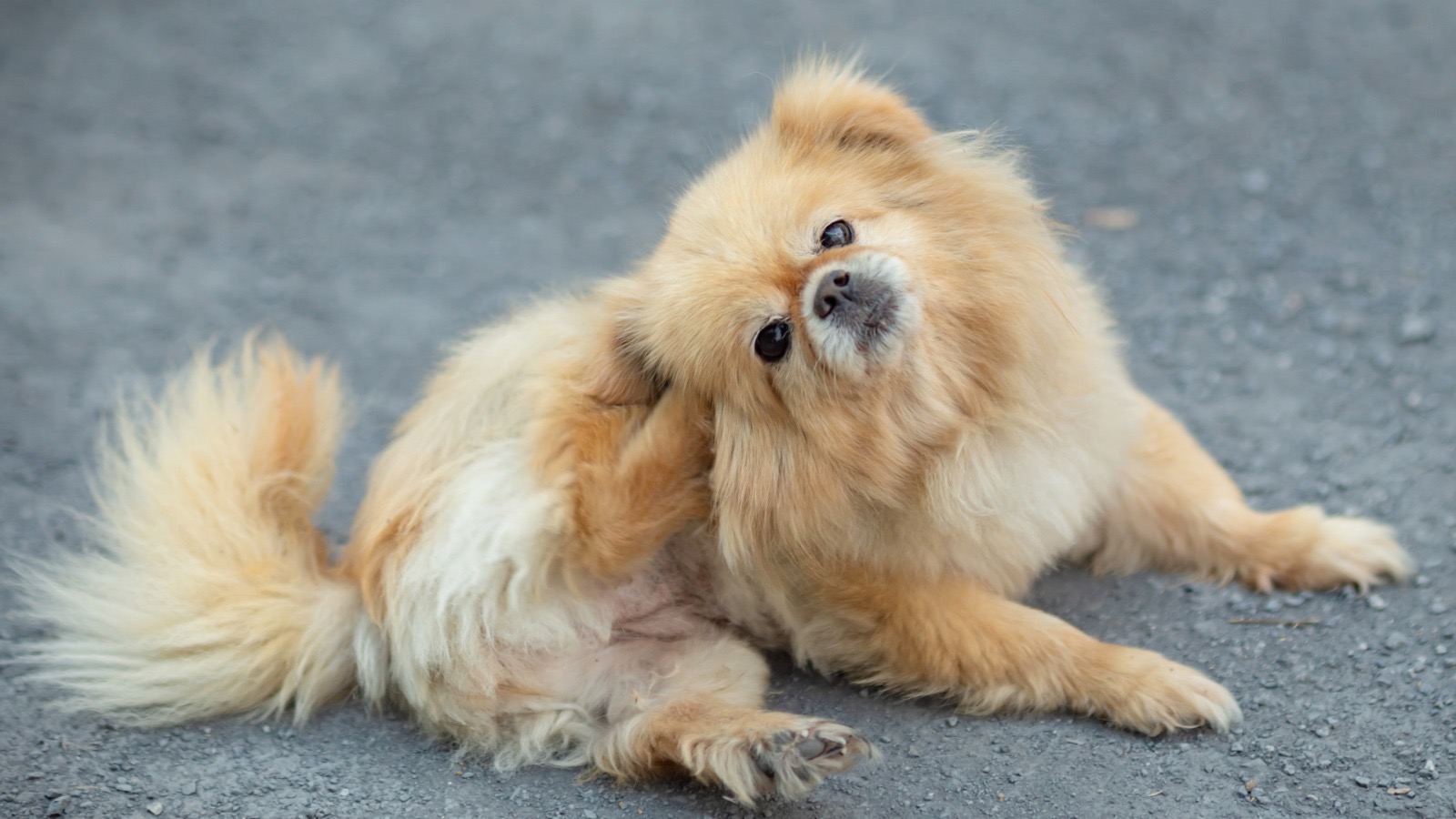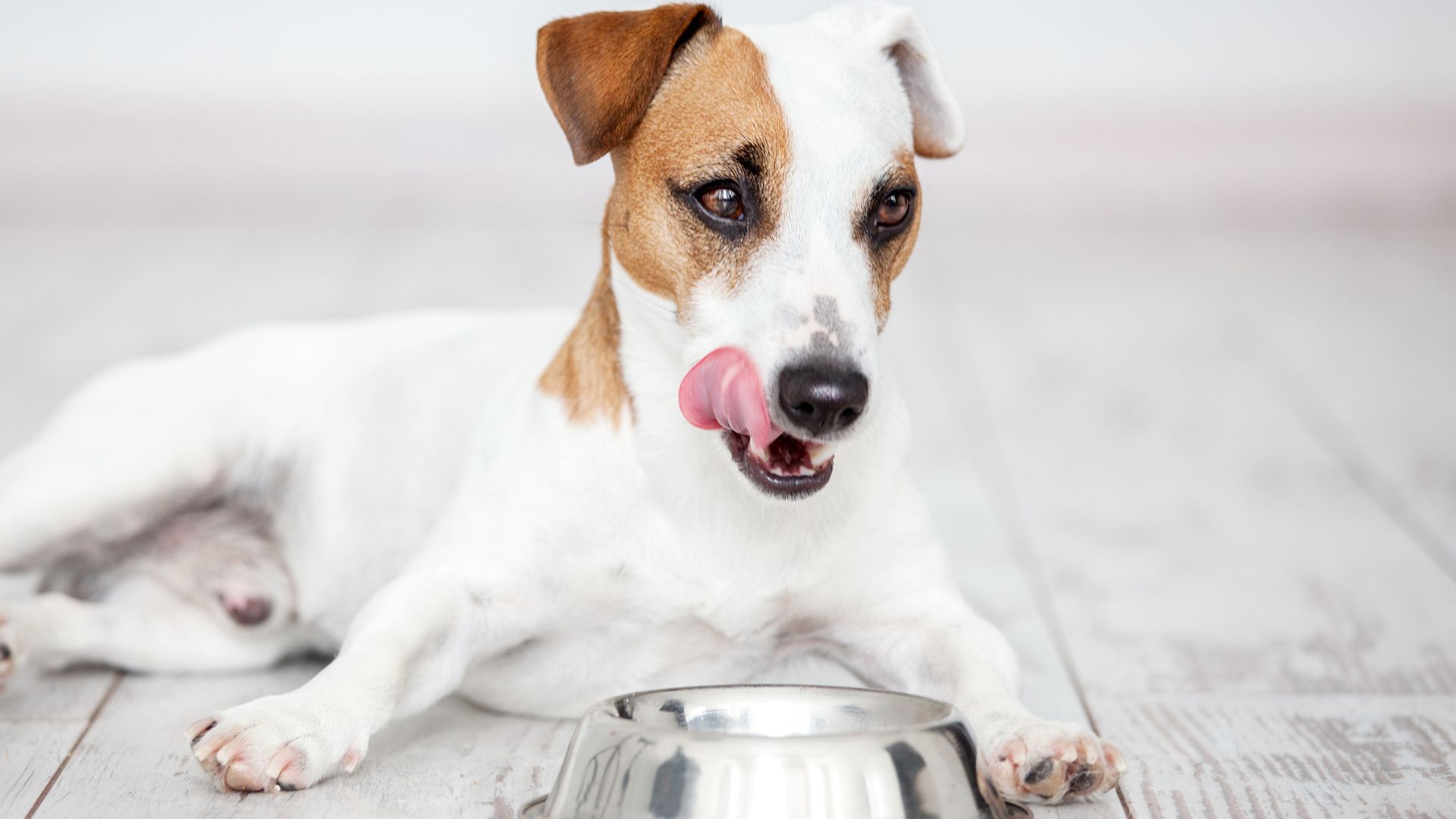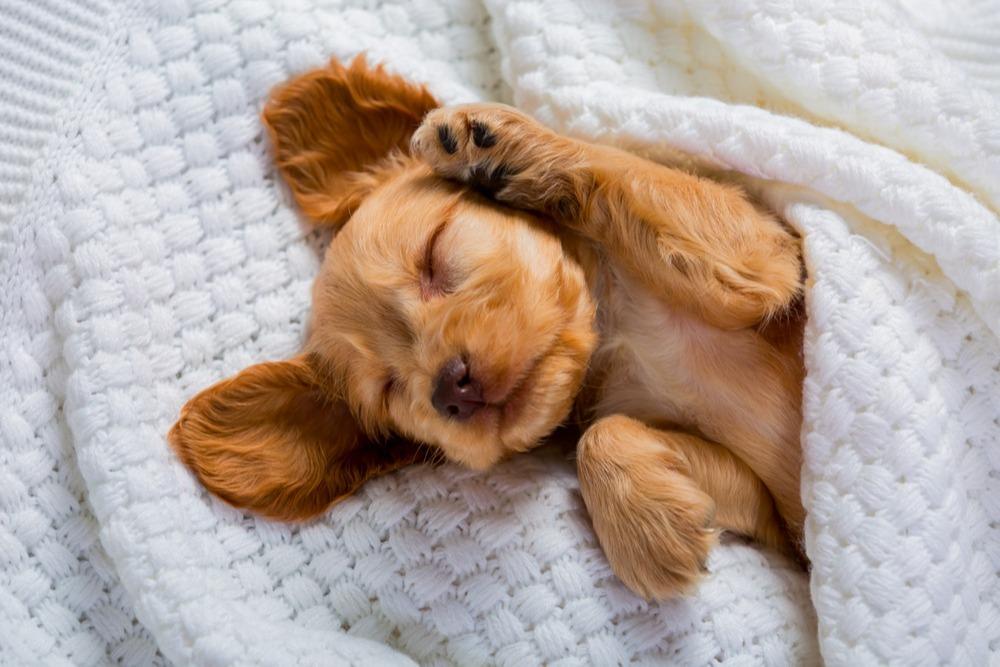
Let’s take a trip back to the late 1800s. Whilst Coca Cola was sold in bottles for the first time in 1894, we still hadn’t made that much progress with animal testing.
Marie De Manaceine was fascinated with sleep deprivation. She had established that mental disturbance resulted from partial insomnia, but she wanted to know more.
So, in her Lab, she recruited puppies. 10 to be specific; aged 2, 3 or 4 months old. Whilst they continued to be fed by their mother, she kept them in constant activity. In short, she deprived them totally of sleep.
After 96-120 hours, the puppies were irreparably lost.
What is interesting (despite it being macabre), is that when puppies were starved, they could be saved after 20-25 days. This wasn’t possible when they were sleep deprived.
Sleep is an essential part of your puppy’s life.
Returning to Marie’s study, she found that sleep deprivation significantly affected the puppy’s brains. When they were starved, the brain was left almost spared. But, in the absence of sleep, fat degeneration, blood vessel abnormalities and haemorrhaging occurred.
In short, when the rest of the body is negatively affected by malnutrition, to an extent it can be saved. However, when the brain is affected, it is fatal.
The brain is the command centre for the nervous system. It is divided into three main sections; the brain stem which controls basic life functions, the cerebrum, which is responsible for decision making and the cerebellum which controls movement.
We know how a diet limited in lipids can detrimentally affect the brain and contribute to neurological disease, but sleep deprivation still had a worst impact in these puppies.
Sleep is essential to many vital functions. It plays a part in energy conservation, brain waste clearance, immune system modulation, cognition, performance, disease and psychological state.
Many studies since Marie’s, have demonstrated that sleep loss (not deprivation) during development can result in reduced brain mass, neuronal death and subsequent behavioural problems. Impaired sleep is also a contributing factor in cases of cancer and diabetes. It can also affect how an animal responds to infection and heals wounds.
The long and the short of it, sleep is essential to life. Without it, it massively affects the control centre that is your brain and can cause a range of knock on health problems further down the line.
This is even more vital for puppies.
It is clear that puppies undergo much more rapid development than the equivalent human child/baby; for example, the average 7-week old puppy would be as developed as a 9-month old human baby. Dogs are also said to be fully matured anywhere between 1-2 years of age (depending on breed). Human brain maturation doesn’t occur until around 25 years of age.
Dogs have a lot more developing to do in a shorter period of time than us humans.
For us to reach full maturation, as with dogs; we undergo cognitive changes, emotional challenges and physical transformations. Sleep is necessary for all of the above.
Puppies need to consolidate what they have learnt that day. Whether it is a new trick or simply to avoid chewing the legs of the chair.
Puppies need their bones to grow and their muscles to recover from that mad dash around the garden.
Puppies eat most things they can get their muzzles around. Some of it may not be particularly nutritional, but they need their immune system strong to fight off any bacteria they accidentally pick up in the park when licking the bench!
Puppies need to store memories. That lorry at the end of the street isn’t as scary as it seems and the vacuum is perfectly safe, just a little noisy.
Sleep helps them do this.
This is why puppies spend a most of their first months, asleep. It’s purely down to the colossal amount of developing they need to do in such a short period of time.
Adult dogs, in a laboratory setting, when left, will sleep on average for around 13 hours per day. They are diurnal, which means they are active during daylight hours. Rest occurs during dark periods with activity increasing the two hours before light. Dogs have a natural rest period around noon and then reduced activity during the afternoon.
Puppies can sleep anywhere between 18-20 hours per day. Again, you will notice higher activity in the morning and then rest, with reduced activity around noon and into the afternoon.
Puppies will sleep generally after they have been playing or learning new skills; if they have just been out for a walk or have just eaten. The important thing is to follow your puppies lead. And, leave a sleeping puppy, sleep.
Interestingly, the experiences that your puppy has can affect the type and quality of sleep they experience though. Studies have found that after a negative experience, dogs will fall asleep more quickly. It is thought that this is a protective sleep in response to stress. This should be in the forefront of your mind throughout your puppy’s development. It’s all too easy to attribute an “exhausted” dog to the busyness of the day. Be mindful, their sleeping habits could be more indicative of their experience.
Many owners see official sleep time as that experienced during the night. This is more appropriate for adult dogs because puppies need the same consideration throughout the day too.
Where you want your dog to sleep is entirely personal preference. Some owners would rather crate train, some would rather not. Some owners are happy having their dog sleep in bed with them, some are not.
Just be mindful, if you intend on crate training and you work; that is a huge part of the day that your dog will be spending in a crate. Crates are great for keeping your puppy safe when you are unable to supervise, but once they have matured, it’s often a good idea to move away from spending so much time in a crate. It can then be used if needed in recovery situations etc.
It can be beneficial setting up a safe space for your puppy, with a crate and barriers/partitions. You can keep your puppy out of trouble if you are unable to supervise when you take the bins out, but he also learns to associate the space with sleep and calm. During the day, when you are home, the partitions/barriers can be left open so he can choose to take himself off for a nap when he needs it. Many puppies are quite good at self-regulating their naps especially if you are thoroughly unexciting and boring. The important thing: if your puppy is due a nap and he’s wild, offer him a calming task and be totally quiet and calm. He’ll soon flake out!
As we’ve mentioned, most puppies will sleep on average 18-20 hours per day.
What this means, is that for a large part of your puppy’s life, they will only be awake for 4-6 hours a day. Keep this in mind when planning their training and socialising. Sessions should be short. It’s important to not overwhelm them as we know negative experiences can impact their development (and their quality of sleep, which in turn affects a whole host of body functions).
The issue with sleeping through the night is little to do with sleeping time, it’s more to do with bladder control. Dogs and puppies are diurnal, so they are instinctively more likely to be awake during light hours and resting during dark hours. Puppies are more likely to be able to hold their bladder when inactive, but there is a rule of thumb when house-training. On average, most puppies can hold their bladder for one hour every month of age. So, when you bring your 8-week-old puppy home, letting them go more than 2 hours without a toilet break is guaranteed to end up with an accident. This is why, when you are toilet training, it’s a good idea to set your alarm during the night to let them out to the toilet. Slowly the alarm can get later and later as they grow.
As we mentioned, when your puppy is active, he won’t hold it as well, so if he’s been chasing his toy for 10 minutes, he’ll probably need a toilet break.
Remember, let him out after play, food and sleep!
Your puppy undergoes a colossal amount of development in a short period of time. His brain needs to mature, his bones need to grow, his muscles need to strengthen, and he needs to consolidate learning and memories. Sleep is an essential factor in all of these processes. Your puppy is doing the development equivalent of an 18-25-year-old human in around 2 years. So, it makes a lot of sense why they sleep so much.
In humans, lack of sleep is a major stressor. It wouldn’t be too much of a stretch to suggest similarly for our canine companions. Below average sleep quotas are linked with anxiety, aggression, decreased response to reward, lower frustration tolerance and low resilience. Sleep disturbances affect hormone levels; specifically stress hormone levels. Rats experiencing sleep disturbance demonstrated less grooming behaviour and opt for fewer enrichment activities.
In short, if you want your puppy and subsequent adult dog to be an emotional stable and well-rounded pooch, who happily engages in enrichment and grooms themselves, they need enough sleep.
Whilst there are some medical issues that can cause sleep disturbances, it makes more sense to break down the statement that your puppy won’t sleep at night. Is your puppy not going to sleep? Are they crying or whining? Is your puppy going to sleep, but then waking and not going back to sleep? Or is your puppy just waking up earlier than you?
We’ll explore each of these in a little more detail now.
If your puppy is struggling to go to sleep, it is likely associated with his emotional state. Consider when he was born. He was in a litter of his siblings and his Mom. Suddenly, he’s brought to a new home and is expected to sleep with no company? This is a huge adjustment. For some puppies, having another resident dog already in the home can help them settle, but if they are an only pup, then you may want to start their nights with you. Some owners would rather sleep on the sofa with their pup, so they are close, some owners are happy to start crate training in their bedroom. The point is your pup knows you are close. Cortisol, the stress hormone, can significantly affect growth. It can modify the timing of development and have a lasting effect on gene expression.
The point is to limit stressful stimuli for your developing pup. So don’t let them get to the stage where they are crying in fear or anxiety.
There is no evidence to suggest that being close to your puppy causes later separation anxiety. Quite the opposite; when your pup is content, he is more likely to be emotionally stable.
If your puppy is waking in the night, he could need the toilet, or again, he could have just suddenly realised he’s alone. Let him out to the toilet, but don’t engage in play. Stay calm and praise/reward him when he toilets. Bring him back in and calmly put him back to bed. If he is frequently waking in the night and toilet breaks don’t seem to settle, it could be worth retracing some steps where you are closer to him again.
We know that maternal stress, depression or anxiety negatively affects foetal development.
Maternal nutrition also affects cognition.
This is no different in dogs. So, you must consider the experiences of your pup before you even brought him home and how this could have potentially affected his emotional state.
The final common question around puppies and their sleep, is how early they wake. As we’ve mentioned, dogs are diurnal. They wake during light time hours, and rest during dark periods. Like us. It’s normal for them to wake as soon as the sun comes up. It’s the basic mechanism of the circadian rhythm. Ask any puppy owner and they will tell you that their sleep cycle adjusted massively when they first had a puppy – puppy may be getting plenty, but not Mum or Dad. If your pup is waking with the sun, then consider moving their sleeping space to a room with blackout blinds or curtains. If you live somewhere with seasons, then Winter naturally has shorter light periods so it’s generally easier to fall into a routine. Summer can be difficult as the days are long. But then, you have the bonus of not standing outside in the snow to toilet train during the summer! Some seasoned owners will opt to get a puppy at certain times of year, so it could be worth considering if you think you’ll struggle with early mornings but don’t mind getting drenched to toilet train!
Just as we would as humans, good sleep hygiene is crucial in helping your puppy’s sleep habits. Routine is essential. Feed times are a good staple. Try to stick to regular mealtimes, but don’t worry too much about walks and play at the exact same time every day. Some dogs can develop routine related anxiety – that is, if something doesn’t happen when they expect it to, they can start demonstrating stress behaviours, like pacing, panting and whining. The other part of your routine is to ensure quiet time before bed. So, after their evening meal, you may do some calm obedience training if you want to, but for the 1-2 hours before bed, they would be chilling just as you do.
Sleep is an essential part to all our lives. This is no different for puppies. When young, they will spend the majority of their day asleep. Anywhere between 18-20 hours. As shown by Marie De Manaceine, quite simply, lack of sleep can be fatal. Whilst we have moved on from the macabre testing (somewhat), newer studies show time and time again how sleep deprivation negatively affects cognition, development, behaviour and emotional stability. If we want a fully matured, healthy and emotionally stable pooch, we need to let sleeping dogs sleep. Consider how you plan training and socialising for your pup as it’s super easy to overwhelm them in those few hours they are awake. If you have kids, teach them the importance of letting the pup sleep. Set up a safe space for pup, that he knows is calm and quiet and he can retreat when the world gets a little too exhausting.
Raising a puppy is so rewarding, but it does have its own challenges. If you would like any support with your puppy’s health or nutrition, check out our services to see how we can help.



